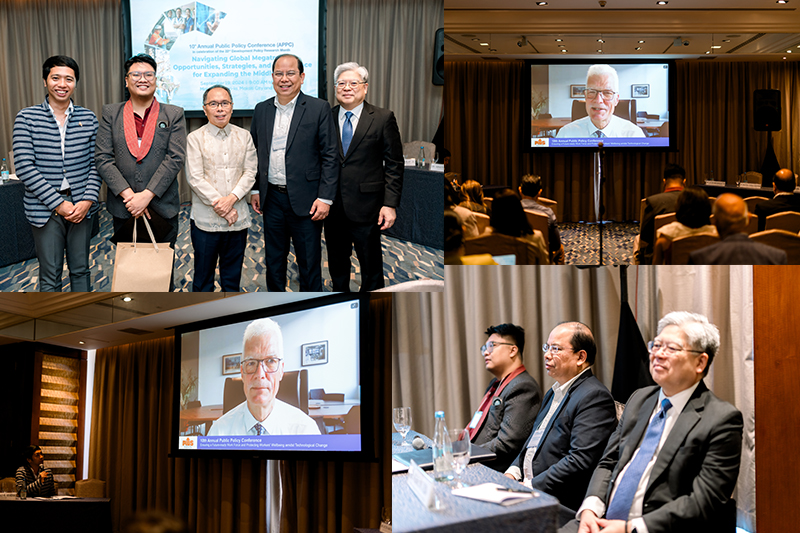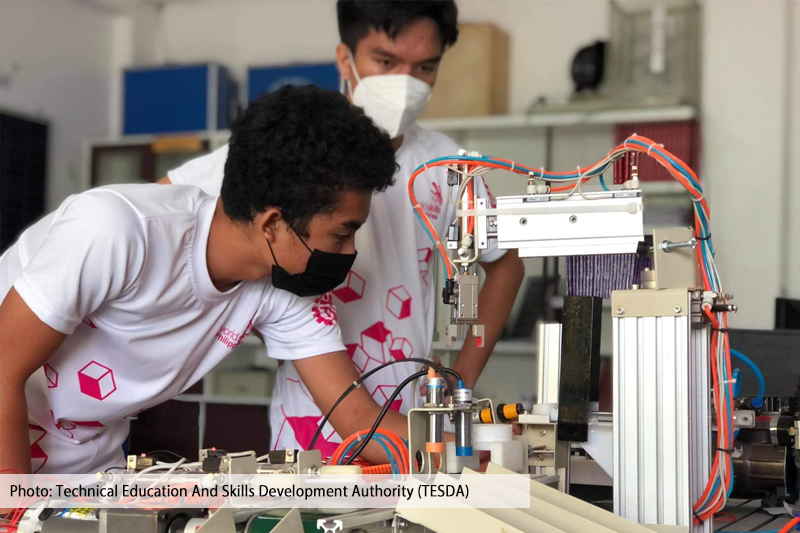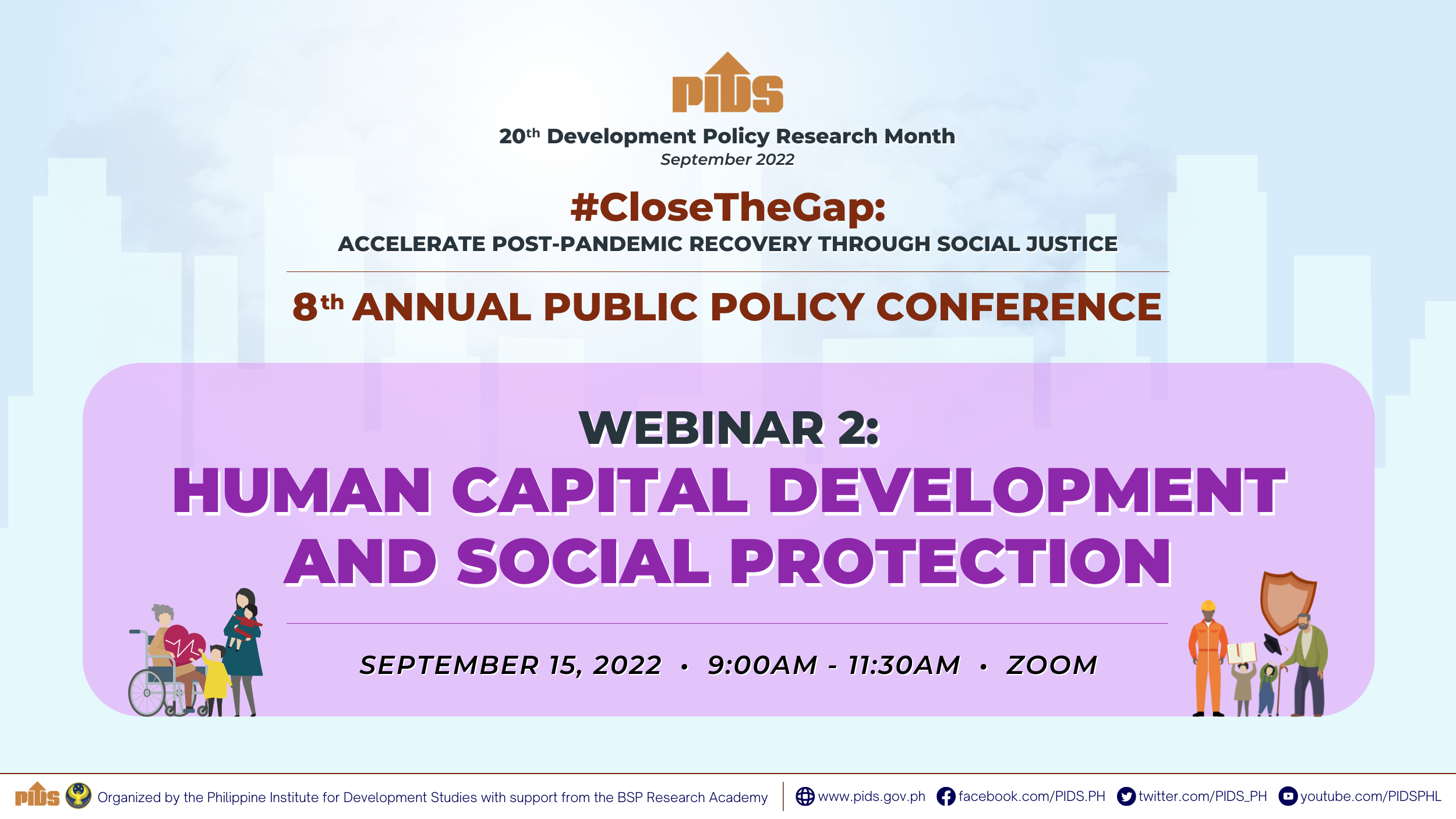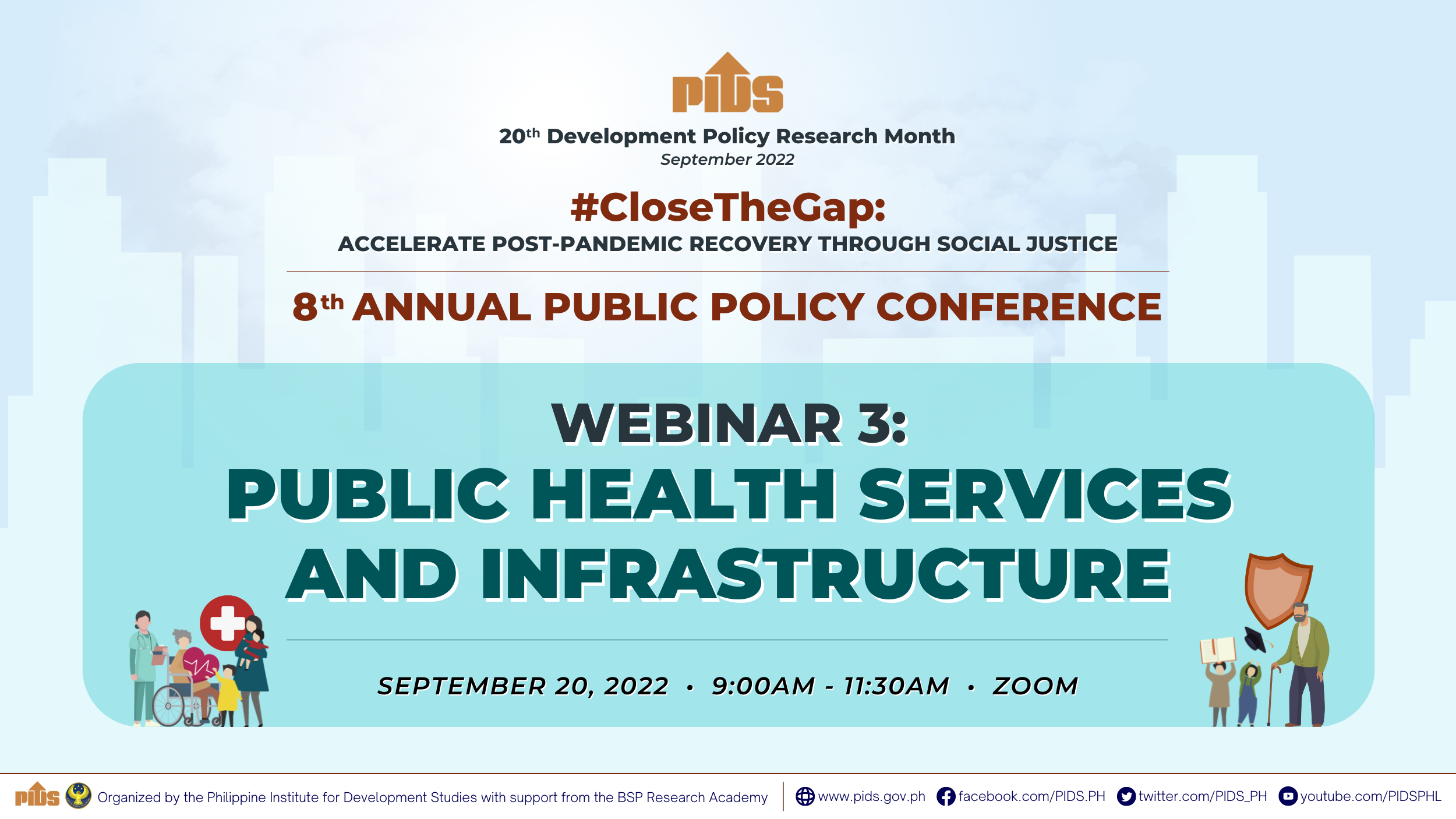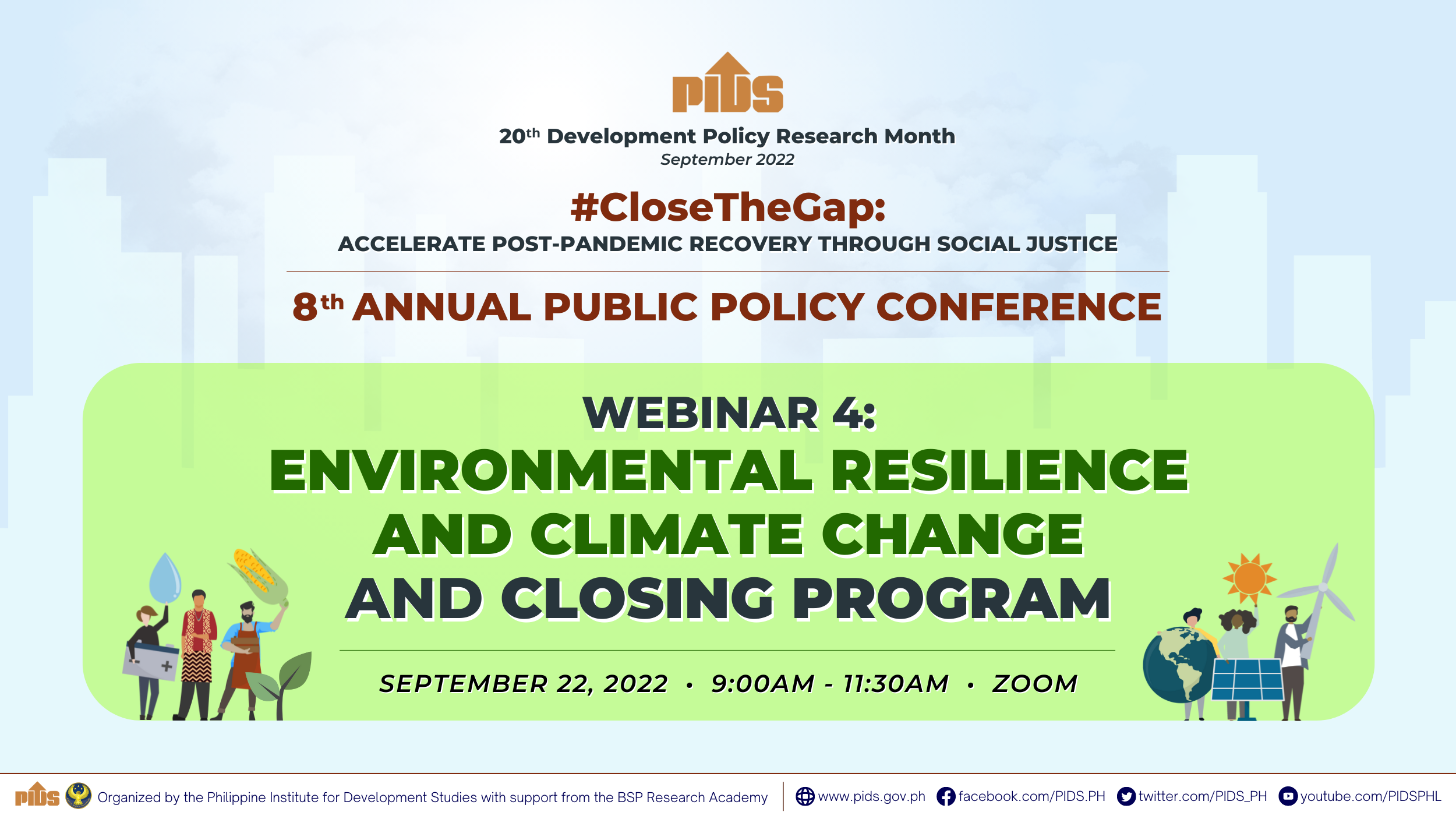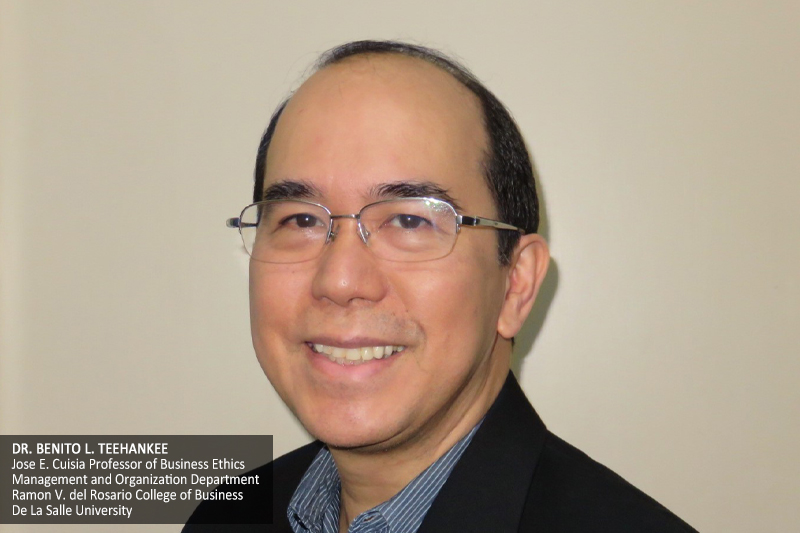
All businesses are “socially bound to always think of the welfare of the whole”.
This was highlighted by Dr. Benito L. Teehankee, a business ethics professor at the De La Salle University’s Management and Organization Department, during the webinar on “Resetting Capitalism” conducted as part of the 7th Annual Public Policy Conference (APPC).
Teehankee, a discussant at the virtual event, explained that while businesses, including corporations, are allowed to operate under the law, they must always consider the interests of others.
“Businesses have a key role in ensuring that our constitutional vision is achieved. Because businesses, in effect, are welfare or dignity pumps, they enable opportunity for those who have less in life so that we can grow and achieve our vision as a country,” he said.
Teehankee added that “if a company makes consistent socially sensitive decisions, its reputational capital will increase.” Thus, it is in the best interest of firms to be sensitive to how the rest of society thinks.
He also mentioned that while the Philippines has one of the highest number of laws per capita compared to other countries, enforcement has always been an issue. “We have an extremely under-resourced justice system. Hardly any white-collar criminal ends up in jail, especially the more prominent ones,” he said.
Further, Teehankee pointed out that Filipinos are still feudal in mindset because many still believe that “those who have more property should be given more deference in society. Or those who are politically powerful are somehow higher [in status].”
“As a society, we have completely failed to educate our citizenry on the fundamental concept that our power emanates from the sovereignty of the people. Therefore, the situation we see in the corporate field (where we do not hold companies accountable for the externalities that they have [created]) is simply a reflection of our feudal mindset,” he said.
Meanwhile, Teehankee noted that large businesses still control the country’s total economy.
“By sheer statistical number, we have a lot of informal and small businesses, but the volume of big business is [still] a dominant force. Therefore, since business is an integrated activity, many of the small suppliers in the supply chain are connected to these big businesses…Obviously, small businesses are at the mercy of big businesses,” he said.
While the impact of big businesses cannot be underestimated, Teehankee pointed out that the problem lies in the “heavy concentration of business activities among very few conglomerates because of the lack of competition”.
“If we can influence big business leaders to see society as their playground that they need to uplift as a whole, this will also grow their market. Let us face it, if we do not have a growing middle class, the market (even for big businesses) will remain very small. If we grow our middle class, there is more for everyone,” he explained.
To be able to move forward especially post-pandemic, he urged the business sector to support the Covenant for Shared Prosperity, which the Management Association of the Philippines and several other institutions promote to remind businesses to go back to the fundamental mandate of the Constitution, i.e., to take care of employees, provide helpful products and services, treat the supply chain and their financiers fairly, help the communities of which they are a part of, take care of the environment for present and future generations, and give the rightful return to the equity investors.
The APPC is the main and culminating activity of the Development Policy Research Month celebration led by the Philippine Institute for Development Studies every September. This year’s theme is “Reset and Rebuild for a Better Philippines in the Post-Pandemic World”, or in Filipino, “Muling Magsimula at Magtayo Tungo sa Mas Matatag na Pilipinas Pagkatapos ng Pandemya”.###
You may watch the APPC webinar on “Resetting Capitalism” at https://fb.watch/80cNUo490z/ or https://www.youtube.com/watch?v=TEEuBdc2Epk. For more videos of PIDS events, go to https://www.pids.gov.ph/videos.
This was highlighted by Dr. Benito L. Teehankee, a business ethics professor at the De La Salle University’s Management and Organization Department, during the webinar on “Resetting Capitalism” conducted as part of the 7th Annual Public Policy Conference (APPC).
Teehankee, a discussant at the virtual event, explained that while businesses, including corporations, are allowed to operate under the law, they must always consider the interests of others.
“Businesses have a key role in ensuring that our constitutional vision is achieved. Because businesses, in effect, are welfare or dignity pumps, they enable opportunity for those who have less in life so that we can grow and achieve our vision as a country,” he said.
Teehankee added that “if a company makes consistent socially sensitive decisions, its reputational capital will increase.” Thus, it is in the best interest of firms to be sensitive to how the rest of society thinks.
He also mentioned that while the Philippines has one of the highest number of laws per capita compared to other countries, enforcement has always been an issue. “We have an extremely under-resourced justice system. Hardly any white-collar criminal ends up in jail, especially the more prominent ones,” he said.
Further, Teehankee pointed out that Filipinos are still feudal in mindset because many still believe that “those who have more property should be given more deference in society. Or those who are politically powerful are somehow higher [in status].”
“As a society, we have completely failed to educate our citizenry on the fundamental concept that our power emanates from the sovereignty of the people. Therefore, the situation we see in the corporate field (where we do not hold companies accountable for the externalities that they have [created]) is simply a reflection of our feudal mindset,” he said.
Meanwhile, Teehankee noted that large businesses still control the country’s total economy.
“By sheer statistical number, we have a lot of informal and small businesses, but the volume of big business is [still] a dominant force. Therefore, since business is an integrated activity, many of the small suppliers in the supply chain are connected to these big businesses…Obviously, small businesses are at the mercy of big businesses,” he said.
While the impact of big businesses cannot be underestimated, Teehankee pointed out that the problem lies in the “heavy concentration of business activities among very few conglomerates because of the lack of competition”.
“If we can influence big business leaders to see society as their playground that they need to uplift as a whole, this will also grow their market. Let us face it, if we do not have a growing middle class, the market (even for big businesses) will remain very small. If we grow our middle class, there is more for everyone,” he explained.
To be able to move forward especially post-pandemic, he urged the business sector to support the Covenant for Shared Prosperity, which the Management Association of the Philippines and several other institutions promote to remind businesses to go back to the fundamental mandate of the Constitution, i.e., to take care of employees, provide helpful products and services, treat the supply chain and their financiers fairly, help the communities of which they are a part of, take care of the environment for present and future generations, and give the rightful return to the equity investors.
The APPC is the main and culminating activity of the Development Policy Research Month celebration led by the Philippine Institute for Development Studies every September. This year’s theme is “Reset and Rebuild for a Better Philippines in the Post-Pandemic World”, or in Filipino, “Muling Magsimula at Magtayo Tungo sa Mas Matatag na Pilipinas Pagkatapos ng Pandemya”.###
You may watch the APPC webinar on “Resetting Capitalism” at https://fb.watch/80cNUo490z/ or https://www.youtube.com/watch?v=TEEuBdc2Epk. For more videos of PIDS events, go to https://www.pids.gov.ph/videos.




